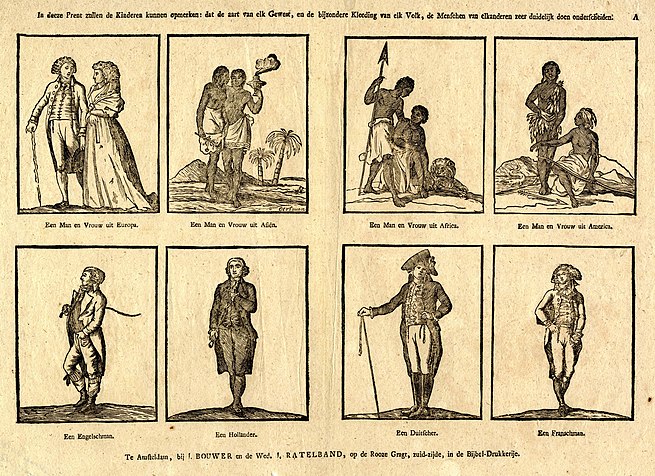
Main Difference
The main difference between Prejudice and Stereotype is that the Prejudice is a prejudgment, or forming an opinion before becoming aware of the relevant facts of a case and Stereotype is a thought that may be adopted about specific types of individuals or certain ways of doing things.
-
Prejudice
Prejudice is an affective feeling towards a person or group member based solely on their group membership. The word is often used to refer to preconceived, usually unfavorable, feelings towards people or a person because of their sex, gender, beliefs, values, social class, age, disability, religion, sexuality, race/ethnicity, language, nationality, beauty, occupation, education, criminality, sport team affiliation or other personal characteristics. In this case, it refers to a positive or negative evaluation of another person based on their perceived group membership.
Prejudice can also refer to unfounded beliefs and it may include “any unreasonable attitude that is unusually resistant to rational influence”. Gordon Allport defined prejudice as a “feeling, favorable or unfavorable, toward a person or thing, prior to, or not based on, actual experience”. For the evolutionary psychology perspective, see Prejudice from an evolutionary perspective. Auestad (2015) defines prejudice as characterized by ‘symbolic transfer’, transfer of a value-laden meaning content onto a socially formed category and then on to individuals who are taken to belong to that category, resistance to change, and overgeneralization.
-
Stereotype
In social psychology, a stereotype is any thought widely adopted about specific types of individuals or certain ways of behaving intended to represent the entire group of those individuals or behaviors as a whole. These thoughts or beliefs may or may not accurately reflect reality. Within psychology and across other disciplines, different conceptualizations and theories of stereotyping exist, at times sharing commonalities, as well as containing contradictory elements.
-
Prejudice (noun)
An adverse judgment or opinion formed beforehand or without knowledge of the facts.
-
Prejudice (noun)
Any preconceived opinion or feeling, whether positive or negative.
-
Prejudice (noun)
An irrational hostile attitude, fear or hatred towards a particular group, race or religion.
“I am free of all prejudices. I hate everyone equally.”
-
Prejudice (noun)
Knowledge formed in advance; foresight, presaging.
-
Prejudice (noun)
Mischief; hurt; damage; injury; detriment.
-
Prejudice (verb)
To have a negative impact on (someone’s position, chances etc.).
-
Prejudice (verb)
To cause prejudice in; to bias the mind of.
-
Stereotype (noun)
A conventional, formulaic, and often oversimplified or exaggerated conception, opinion, or image of (a person).
-
Stereotype (noun)
A person who is regarded as embodying or conforming to a set image or type.
-
Stereotype (noun)
A metal printing plate cast from a matrix moulded from a raised printing surface.
-
Stereotype (noun)
An extensibility mechanism of the Unified Modeling Language, allowing a new element to be derived from an existing one with added specializations.
-
Stereotype (verb)
To make a stereotype of someone or something, or characterize someone by a stereotype.
-
Stereotype (verb)
To prepare for printing in stereotype; to produce stereotype plates of.
“to stereotype the Bible”
-
Stereotype (verb)
To print from a stereotype.
-
Stereotype (verb)
To make firm or permanent; to fix.
-
Stereotype (noun)
a widely held but fixed and oversimplified image or idea of a particular type of person or thing
“sexual and racial stereotypes”
“the stereotype of the woman as the carer”
-
Stereotype (noun)
a person or thing that conforms to a widely held but oversimplified image of the class or type to which they belong
“don’t treat anyone as a stereotype”
-
Stereotype (noun)
a relief printing plate cast in a mould made from composed type or an original plate.
-
Stereotype (verb)
view or represent as a stereotype
“the city is too easily stereotyped as an industrial wasteland”
